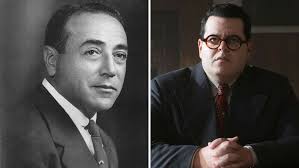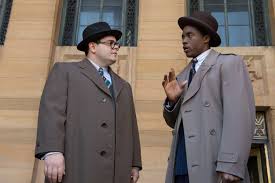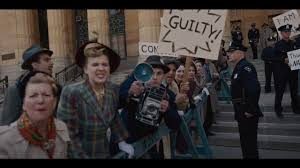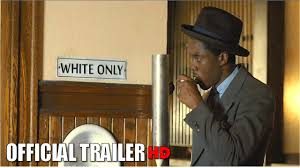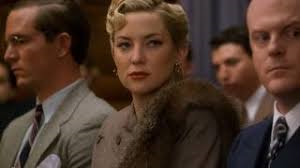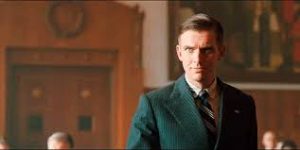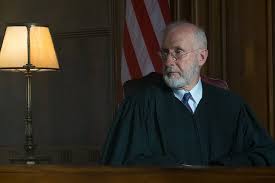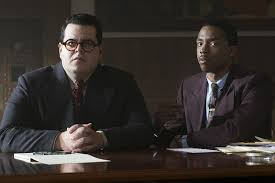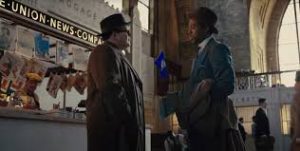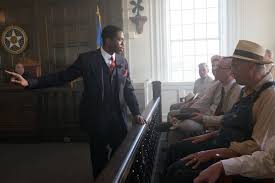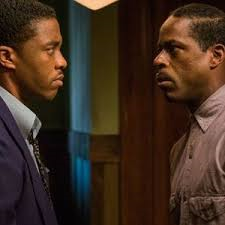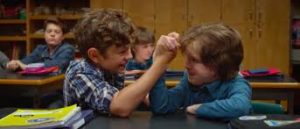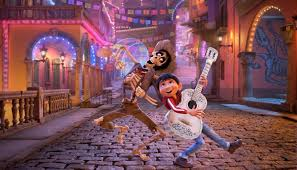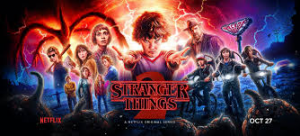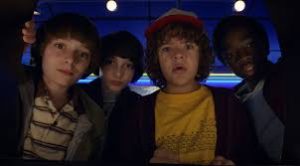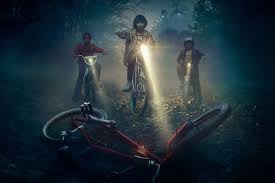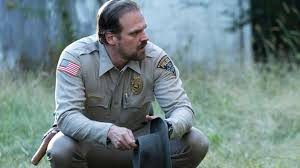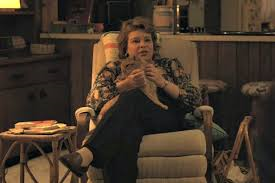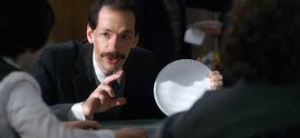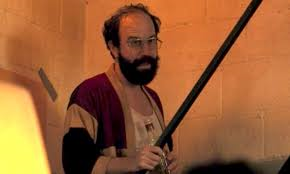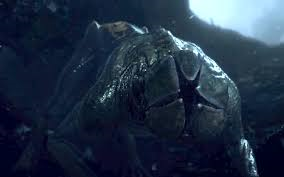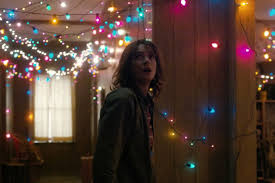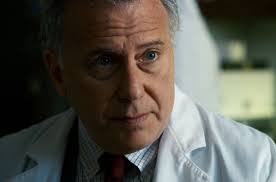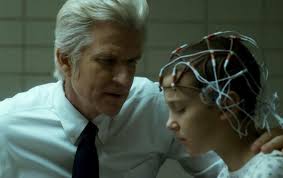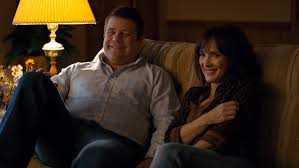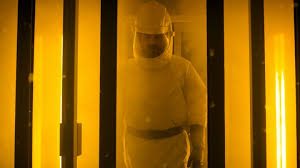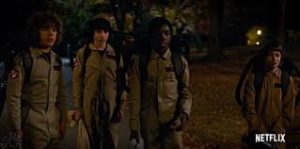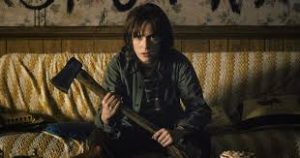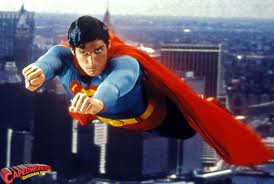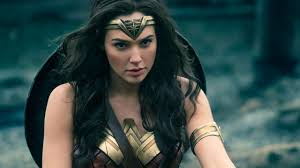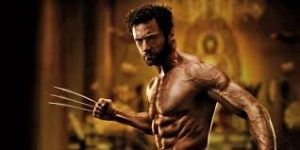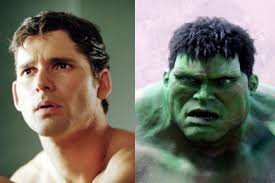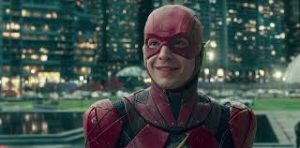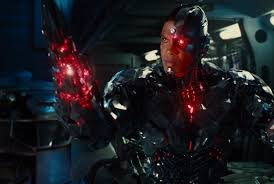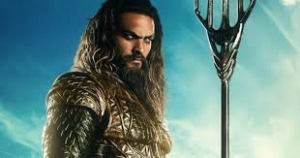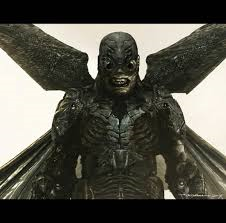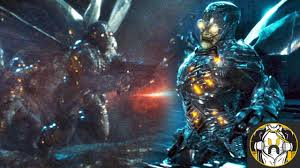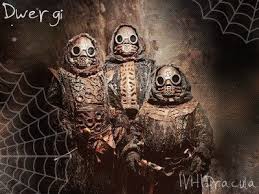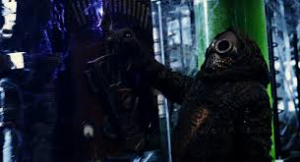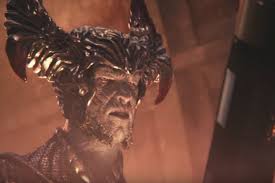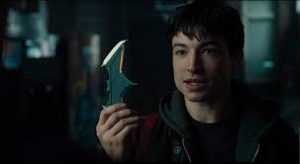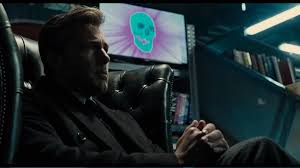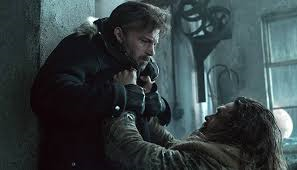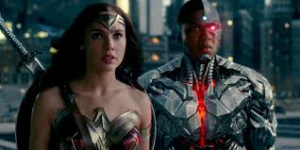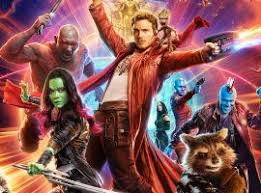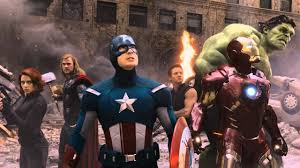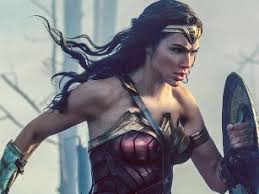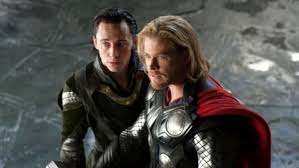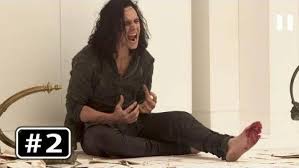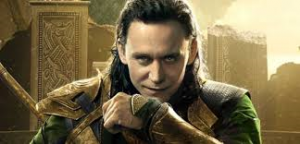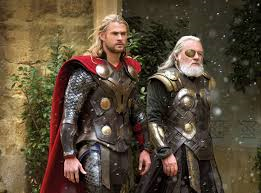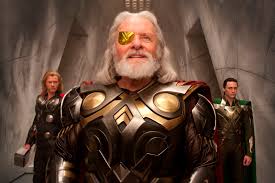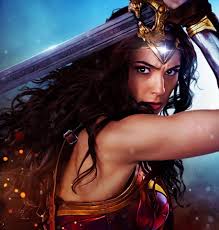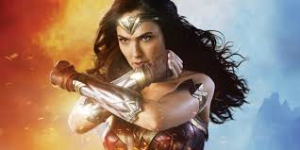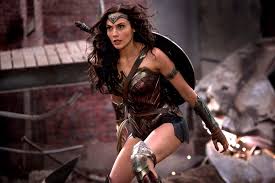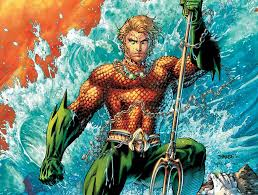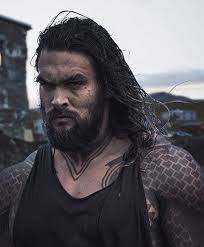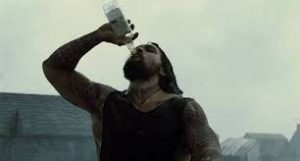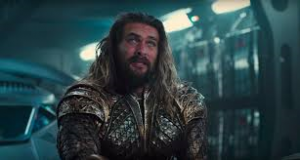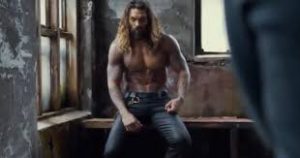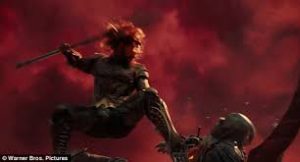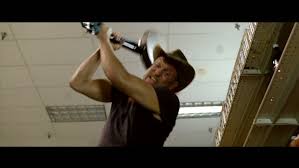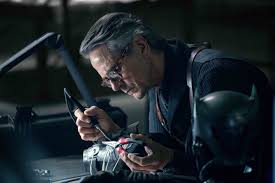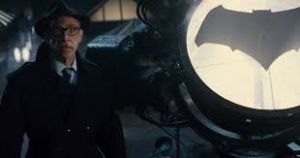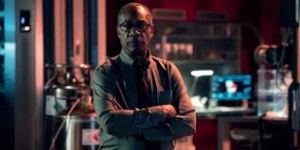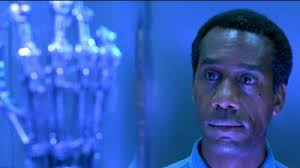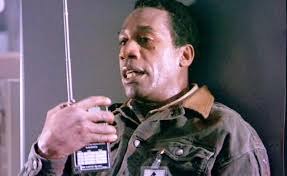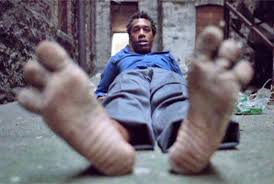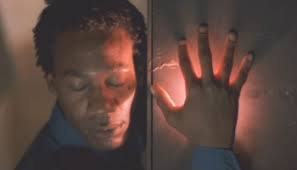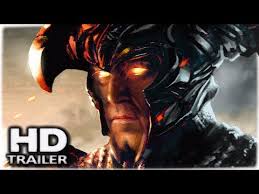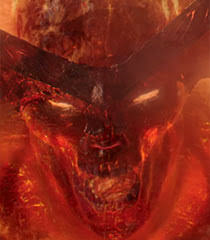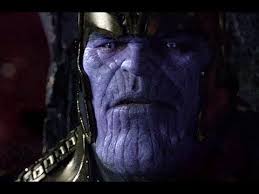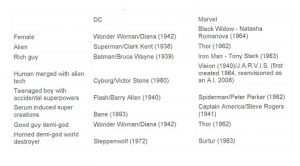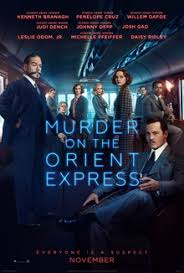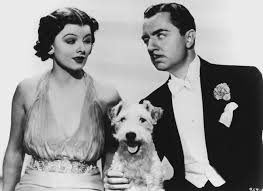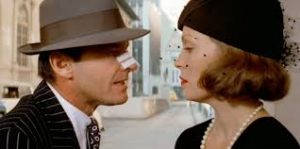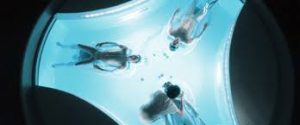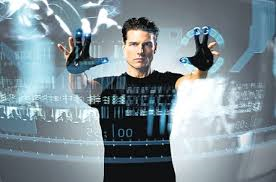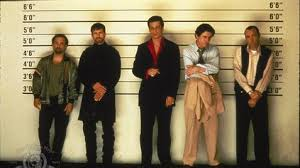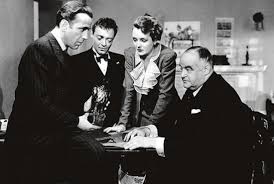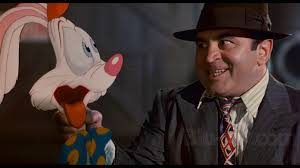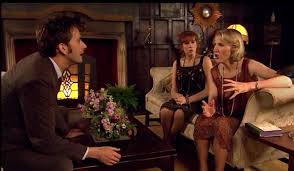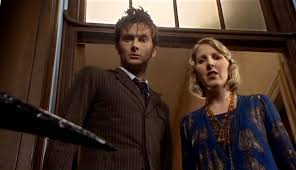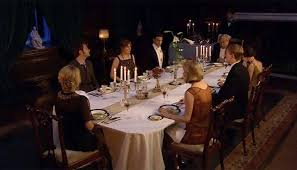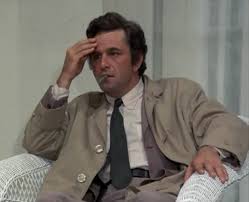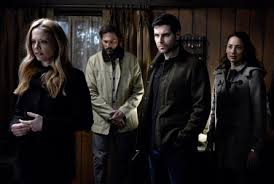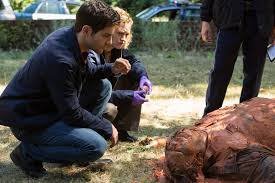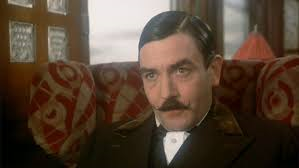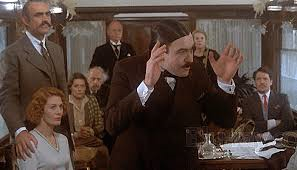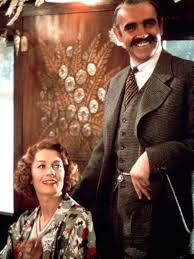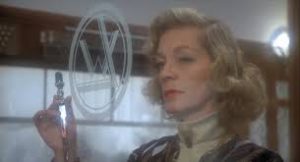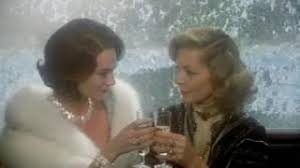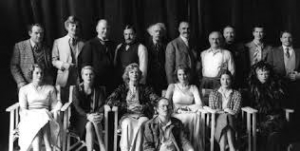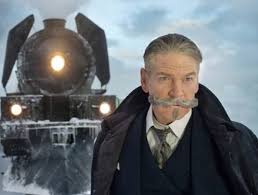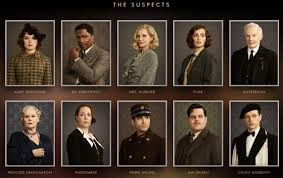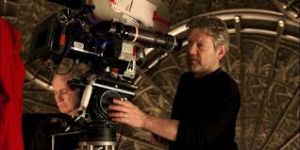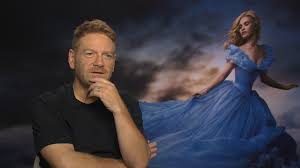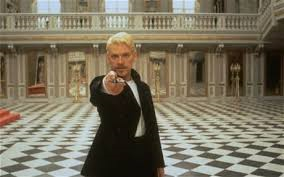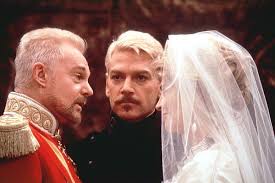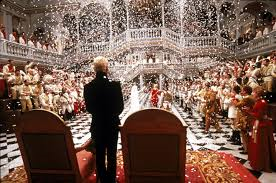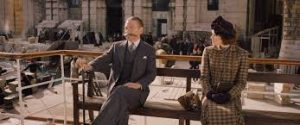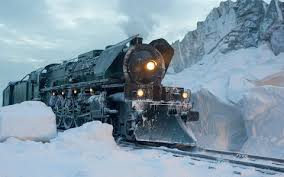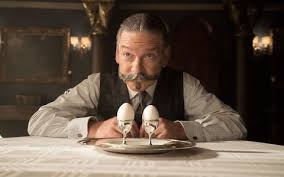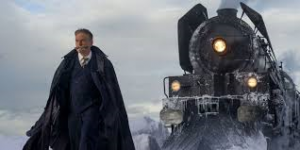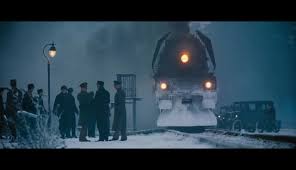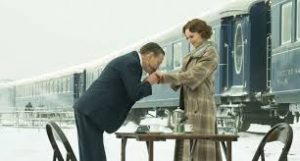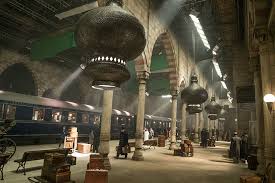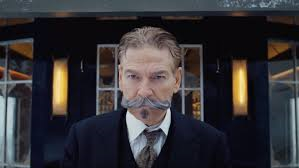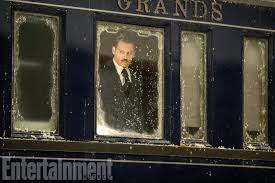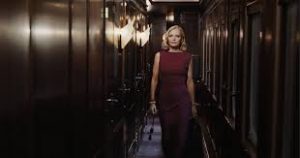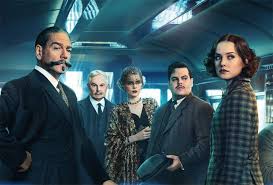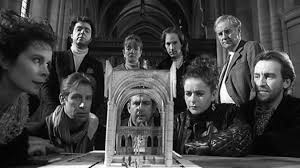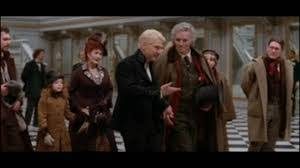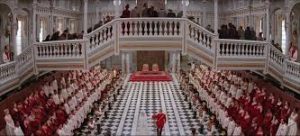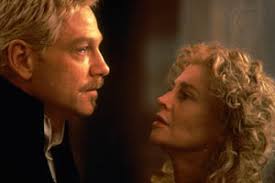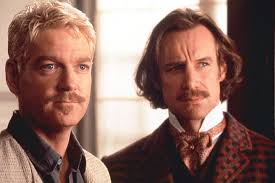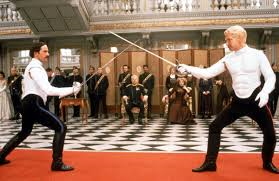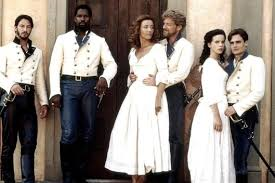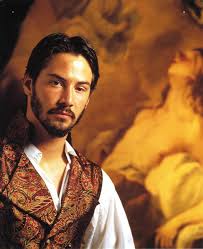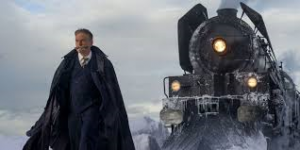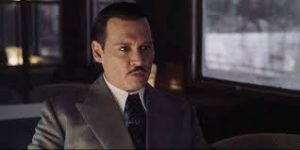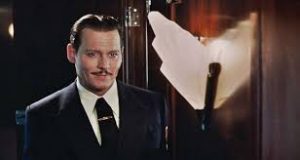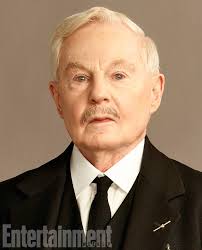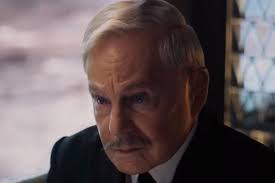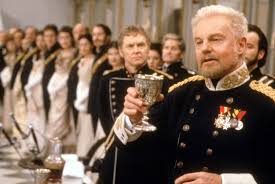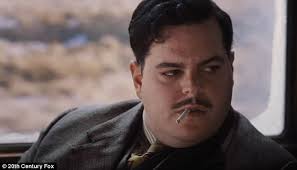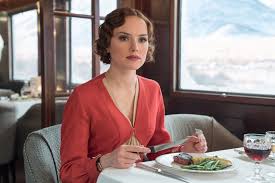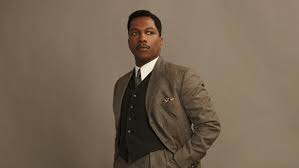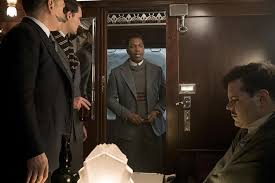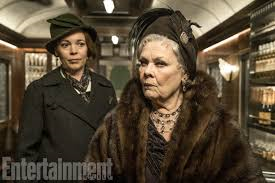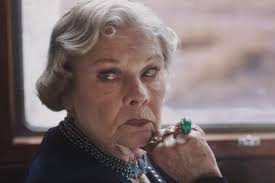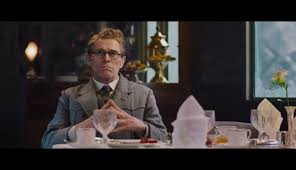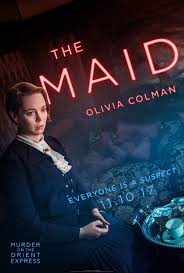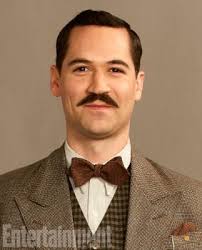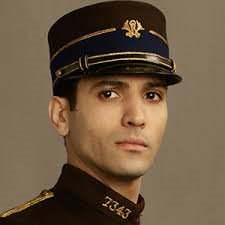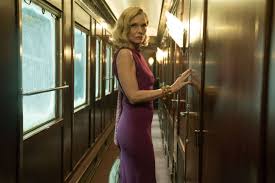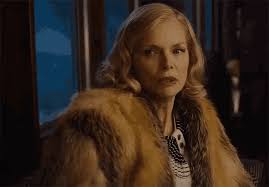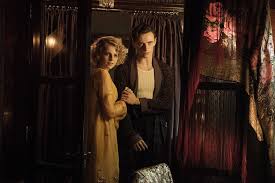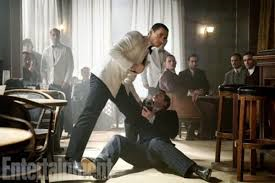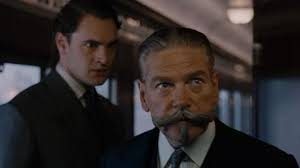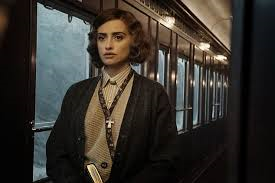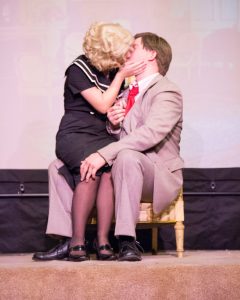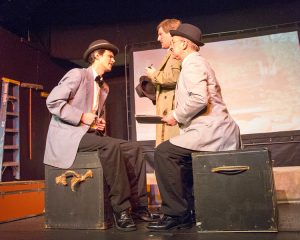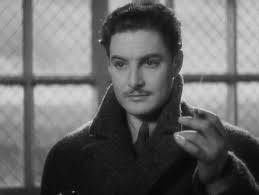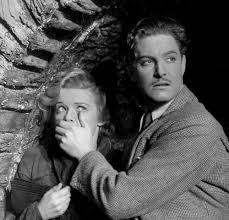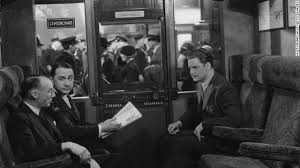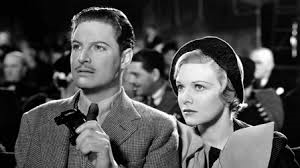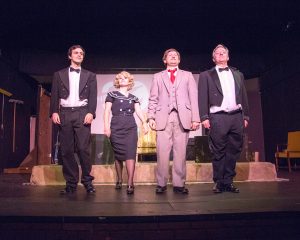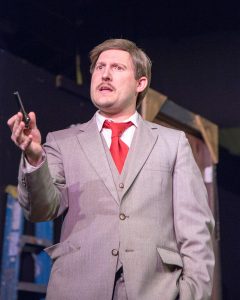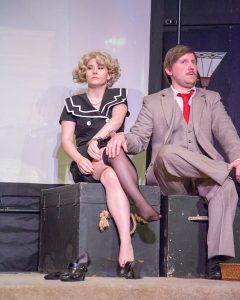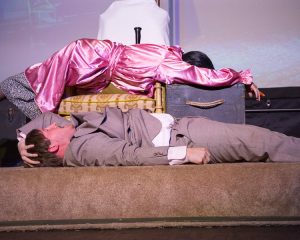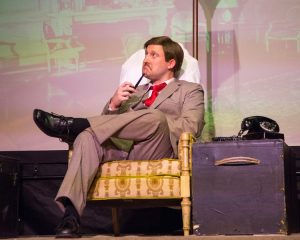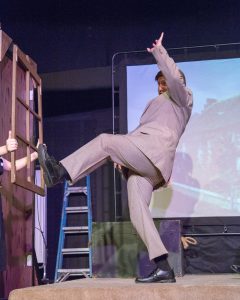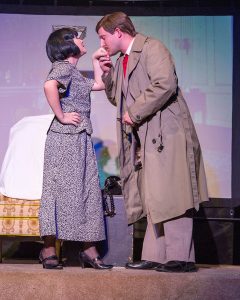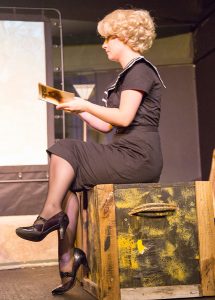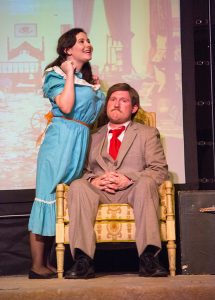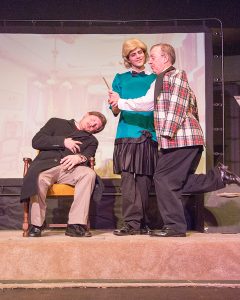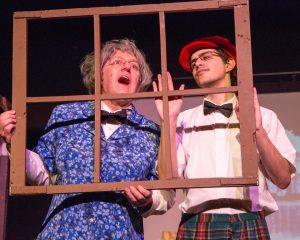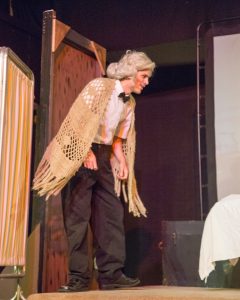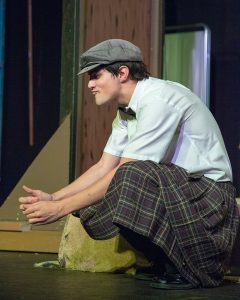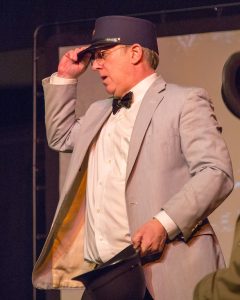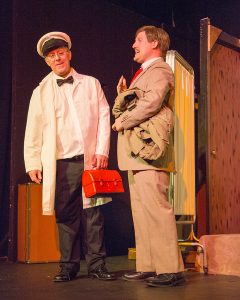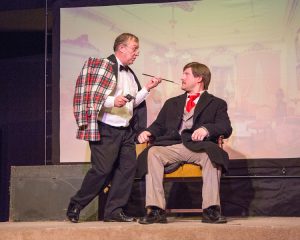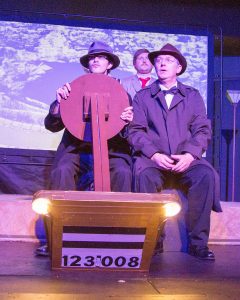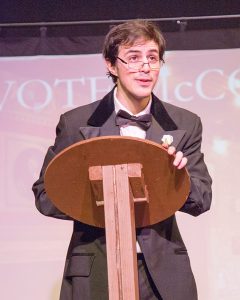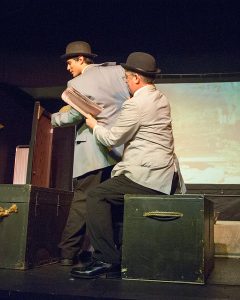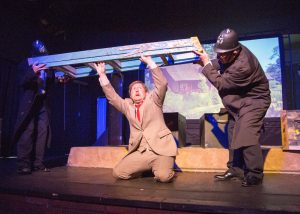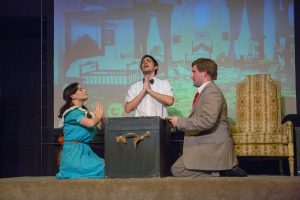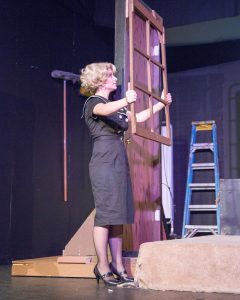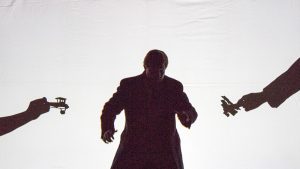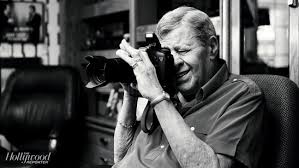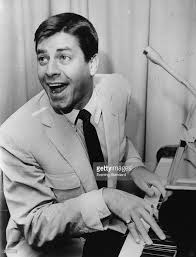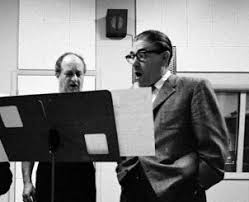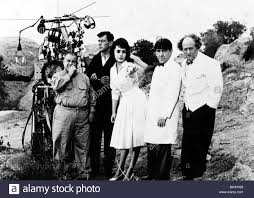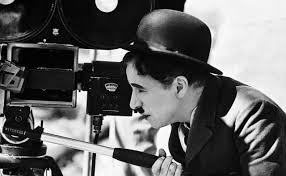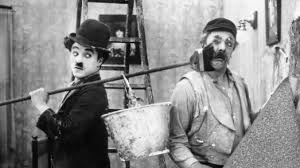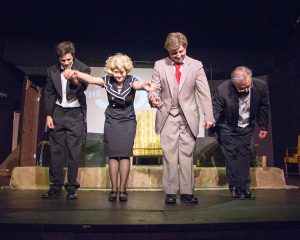I’m going to BEGIN this blog with a major digression. Please bear with me, it is important to the entire point of this review that you understand the following:
Have you ever seen a movie whose main protagonist ends up NOT being the person you were focused on?
Mary Poppins springs to mind. Throughout most of the entire movie  you believe you are watching a cute story about Jane and Michael Banks with their magical nanny, until nearing the end, as Mr. Banks walks the dark streets of London to his almost certain career destroying meeting with his employer,
you believe you are watching a cute story about Jane and Michael Banks with their magical nanny, until nearing the end, as Mr. Banks walks the dark streets of London to his almost certain career destroying meeting with his employer,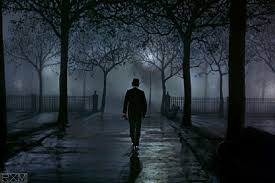
 he passes the steps of St Paul’s Cathedral and understands that he has failed as a father.
he passes the steps of St Paul’s Cathedral and understands that he has failed as a father.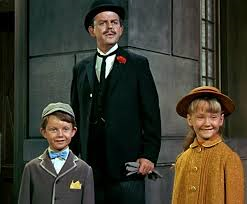 It is then that any movie goer paying attention realizes the movie has been about this well meaning but distracted parent all along and the goal is his reclamation of the father and husband he was meant to be.
It is then that any movie goer paying attention realizes the movie has been about this well meaning but distracted parent all along and the goal is his reclamation of the father and husband he was meant to be.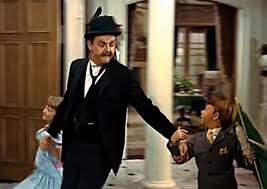
This revelation is most poignantly noted in the trailers for Saving Mr. Banks when the author of Mary Poppins, P.L. Travers, (Emma Thompson), is walking with Walt Disney (Tom Hanks) as Walt enthusiastically tries to convince Ms. Travers to allow him to film her book the "Disney" way: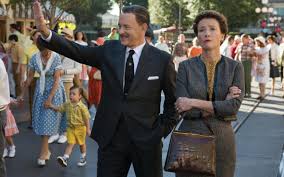
Walt Disney: "'No whimsy or sentiment!' says the woman who sends a flying nanny with a talking umbrella to save the children."
P.L. Travers: "You think Mary Poppins is saving the children, Mr. Disney? Oh dear."
She walks away in dismay leaving behind a stunned Disney.
I was stunned as well – shocked and delighted as this was the first time I had ever heard this epiphany spoken out loud by anyone other than my husband, Bryan – that Mary Poppins had come to help – not Jane and Michael – but their father, Mr. Banks.
Honestly, I was literally jumping up and down in my seat with anticipation barely able to contain my own excitement to share this trailer with Bryan….
But OK now I’ve SERIOUSLY digressed.
Three Billboards outside Ebbing, Missouri (sic: the o in "outside" should, grammatically, be capitalized but is not in the title, so I will not here) seems initially to be about the tragic story of a mother, Mildred (Frances McDormand – mainstay of the Coen Brothers movies and wife of Joel Coen) 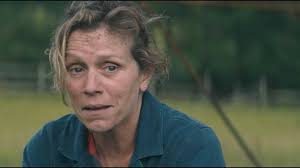
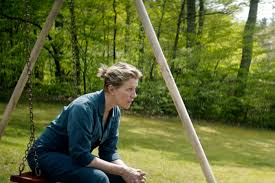
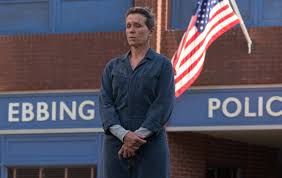 sick with grieving, burdened with the guilt of what she sees as her own "culpability" and frustrated to the point of desperation over the standstill in the investigation of her daughter’s brutal abduction, rape, torture and murder.
sick with grieving, burdened with the guilt of what she sees as her own "culpability" and frustrated to the point of desperation over the standstill in the investigation of her daughter’s brutal abduction, rape, torture and murder.
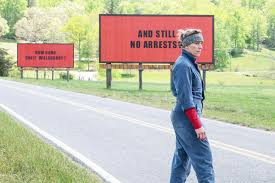
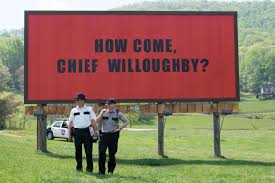 To refocus attention on the 7 month old case she rents three billboards on a stretch of virtually unused road which state, "Burma Shave"-style respectively: "Raped while dying", "Still no arrests." "How come, Chief Willoughby?"
To refocus attention on the 7 month old case she rents three billboards on a stretch of virtually unused road which state, "Burma Shave"-style respectively: "Raped while dying", "Still no arrests." "How come, Chief Willoughby?"
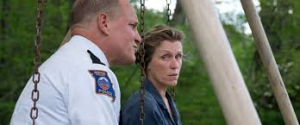
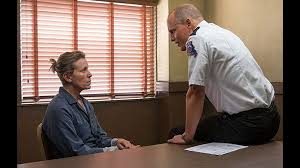 This one act stirs up a hornet’s nest in this otherwise profoundly sleepy and forgotten town, especially since the ire seems targeted to the well-loved and respected Sheriff, (Woody Harrelson), who is almost as frustrated by his inability to find any leads as Mildred.
This one act stirs up a hornet’s nest in this otherwise profoundly sleepy and forgotten town, especially since the ire seems targeted to the well-loved and respected Sheriff, (Woody Harrelson), who is almost as frustrated by his inability to find any leads as Mildred.
The movie – written and directed by Martin McDonagh – appears to pivot around Mildred and the repercussions of these billboards to the town and its inhabitants as sides are taken, lines are drawn, fury is manifested, conclusions are jumped to, and blame is liberally distributed.
Mildred has rejected pretty much everyone in her life except her best friend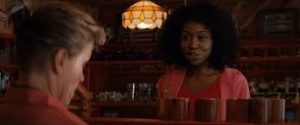 Denise (Amanda Warren) with whom she runs a gift shop and
Denise (Amanda Warren) with whom she runs a gift shop and 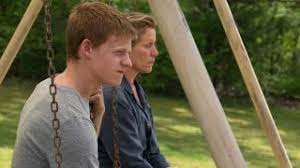 her son, Robbie (Lucas Hedges) who, rightly, finds her a bitterly difficult to live with embarrassment.
her son, Robbie (Lucas Hedges) who, rightly, finds her a bitterly difficult to live with embarrassment. 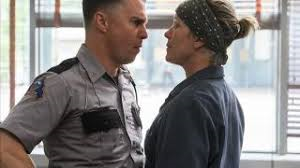 She is a very rough woman who treats her friend
She is a very rough woman who treats her friend 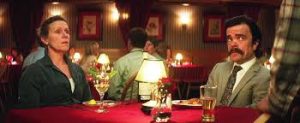 James (Peter "Game of Thrones" Dinklage), with ingratitude and an egregious lack of appreciation,
James (Peter "Game of Thrones" Dinklage), with ingratitude and an egregious lack of appreciation, 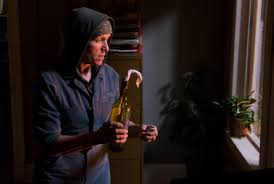 makes leaps of blame and decisions which gets bystanders injured, is an alcoholic and is a neglectful mother.
makes leaps of blame and decisions which gets bystanders injured, is an alcoholic and is a neglectful mother.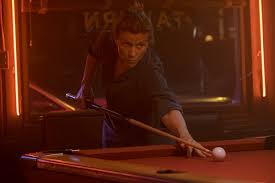 She is irresponsible, verbally abusive and does little to further or comfort her remaining child. She blames people and institutions which have nothing to do with her daughter’s death.
She is irresponsible, verbally abusive and does little to further or comfort her remaining child. She blames people and institutions which have nothing to do with her daughter’s death.
The town is full of eccentric and human characters – from Mildred’s son  Robbie who, while clean cut and disdainful of his mother's behavior, does not hesitate to wield a butcher knife in her defense even against his own father,
Robbie who, while clean cut and disdainful of his mother's behavior, does not hesitate to wield a butcher knife in her defense even against his own father, 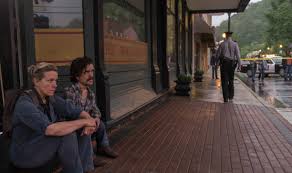 to Mildred’s admirer and friend James, to the victim Angela (Kathryn Newton) who only appears briefly in one scene all Goth and teenaged rebellion,
to Mildred’s admirer and friend James, to the victim Angela (Kathryn Newton) who only appears briefly in one scene all Goth and teenaged rebellion,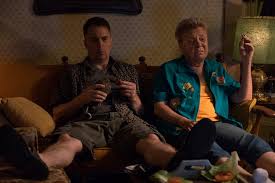 to Dixon's over doting mother (Sandy Martin) and her pet turtle,
to Dixon's over doting mother (Sandy Martin) and her pet turtle, 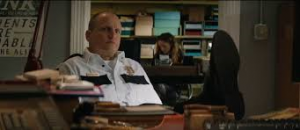
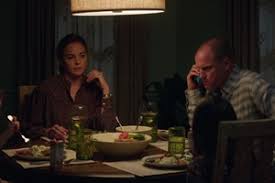 to Willoughby the straight shooting decent family man sheriff,
to Willoughby the straight shooting decent family man sheriff,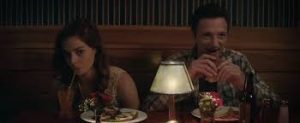 to Charlie (John Hawkes) Mildred’s volatile ex-husband and Penelope (Samara Weaving) Charlie’s bubbleheaded but somehow cluelessly adorable girlfriend,
to Charlie (John Hawkes) Mildred’s volatile ex-husband and Penelope (Samara Weaving) Charlie’s bubbleheaded but somehow cluelessly adorable girlfriend,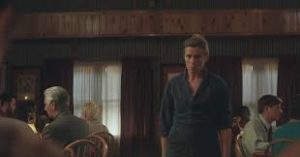 to Mildred who is the kind of tough that can even scare her physically abusive ex-husband.
to Mildred who is the kind of tough that can even scare her physically abusive ex-husband.
And then there’s Dixon, (Sam "Galaxy Quest" Rockwell) Willoughby’s thoroughly inept, racist, ignorant, and oblivious deputy. 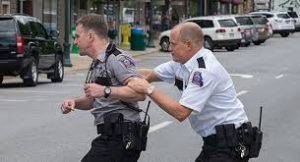 You wonder why Willoughby, as conscientious and decent a man as he is, continues to keep such a provocatively dopey subordinate.
You wonder why Willoughby, as conscientious and decent a man as he is, continues to keep such a provocatively dopey subordinate.

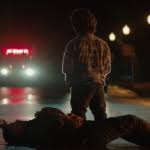 Without revealing too much, time and circumstance eventually reveal not only that much of Dixon’s flaws seem to be expressed as something expected of him but also what is the source of Willoughby’s confidence in such an unlikely and unpromising buffoon.
Without revealing too much, time and circumstance eventually reveal not only that much of Dixon’s flaws seem to be expressed as something expected of him but also what is the source of Willoughby’s confidence in such an unlikely and unpromising buffoon.
Everything that happens in the first three-quarters of the movie is only to provide context for the conversion of Deputy Dixon.
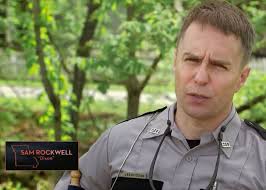 And what is most compelling is the self-reflection, remorse, repentance, accepted mortification, embraced humiliation, confession, willingness to self-sacrifice and redemption of the fallen Dixon.
And what is most compelling is the self-reflection, remorse, repentance, accepted mortification, embraced humiliation, confession, willingness to self-sacrifice and redemption of the fallen Dixon.
Proffered words of unconditional fatherly love to Dixon inspire an act of extreme self-sacrifice which lead to a confession which inspires a forgiving act of kindness received which in turn leads to yet another act of self-giving and eventually a forgiveness given. And at the end there is a tiny chink in Mildred’s armour through which the light of some possible forgiveness may shine, perhaps in turn inspired by Dixon's ultimately unconditional acceptance of her. In the end perhaps a little of what Dixon has learned may have rubbed off on Mildred.
And in addition the acting is terrific. 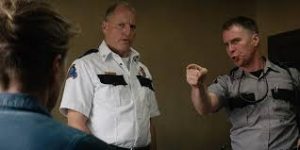
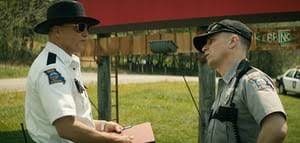 Harrelson gives another great performance.
Harrelson gives another great performance. 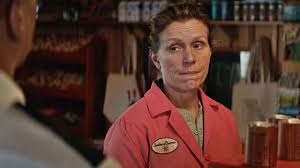 McDormand is amazing and as chameleon like an actress as ever I’ve watched (Fargo, Hail Caeser, Raising Arizona).
McDormand is amazing and as chameleon like an actress as ever I’ve watched (Fargo, Hail Caeser, Raising Arizona). 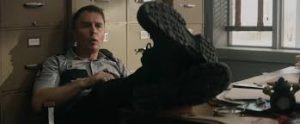 And Rockwell as Dixon steals every scene he's in and carries this enormous character arc with ingenuous conviction. When asked, in an interview, if he thought it was true that it took someone with great intelligence to play this "dumb", Rockwell amended (in what I thought was some classy humility) that, no – he thought it took the ability to tap into a remembered innocence and expand upon it. And that since he, himself, was fairly gullible he was able to connect with this character easily.
And Rockwell as Dixon steals every scene he's in and carries this enormous character arc with ingenuous conviction. When asked, in an interview, if he thought it was true that it took someone with great intelligence to play this "dumb", Rockwell amended (in what I thought was some classy humility) that, no – he thought it took the ability to tap into a remembered innocence and expand upon it. And that since he, himself, was fairly gullible he was able to connect with this character easily.
And although saying Three Billboards is a dark comedy is a bit like calling a jalapeno dusted with sugar a Tootsie Pop, there is humor. Just as there is great human tragedy in the story, there is also human comedy in the interactions of these complex and burdened people.
However, while there is much to recommend in Three Billboards, there is also much to warn against.
The language is horrifying. Imagine every profane word you have ever heard repeated a plethora of times and you will have about 20% of the script. There are none spared.
The topic is, obviously and inherently, difficult.
But the biggest complaint I have is what has become the de rigueur dig against faith. No one in town, despite a number of significant events, seeks comfort or solace in a church or in prayer. To deny that prayer might be a normal reaction is likened to pretending people do not eat because you, yourself, are burdened with the mental illness of anorexia. This omission is an obvious insult to people of faith and I get very tired of the aggressive and passive aggressive denials of this normal human response to disaster.
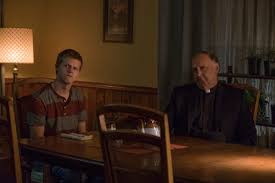 One scene in particular makes the screenwriter's contempt of faith especially jarring. There is one exchange Mildred has with a visiting priest (or perhaps Episcopal minister) wherein she refuses to listen to anything he has to say because other members of his "gang" have abused children. And even though she believes HIM personally innocent she holds him "culpable". She is vulgar, rude and threatening to him. But this is not what bothers me.
One scene in particular makes the screenwriter's contempt of faith especially jarring. There is one exchange Mildred has with a visiting priest (or perhaps Episcopal minister) wherein she refuses to listen to anything he has to say because other members of his "gang" have abused children. And even though she believes HIM personally innocent she holds him "culpable". She is vulgar, rude and threatening to him. But this is not what bothers me.
The grief and guilt she carries almost drive her mad on a daily basis. As Mildred is in a constant state of deep despair and barely restrained fury – like a dog which bites at even those hands attempting to help it – her behavior is at least understandable.
The reaction of the minister, however, I found objectionable. First, the minister does nothing to respond to Mildred – not in comfort, or forgiveness – but simply bows his head in what is intended to be a gratuitous acceptance of guilt. In addition, a good minister, seeing the extreme pain in which this woman was drowning, especially someone who is a former congregant and someone who he obviously knows and likely grew up with, would have returned to minister, even should he be continually turned away or spate upon. He would have tried. Instead, after Mildred’s rebuking he just slinks away, never to be seen again. Aside from pointing out Mildred’s rejection of all conventional assistance – family, friends, police, counselors, medical professionals, and religion – it seems a pointed and deliberate insult to a man of the cloth in general and the Catholic Church in particular.
While Three Billboards is a fascinating examination of how even terrible events can lead someone to be a better person, I can only wish for what the Coen Brothers, who have far more respect for God, religion and people of faith, might have done with this story.
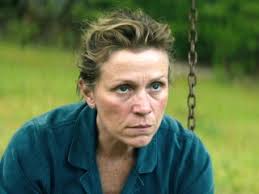
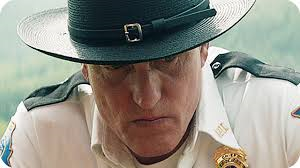
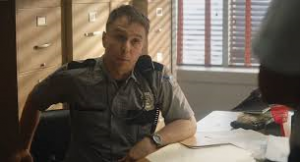 However, given the movie is ultimately not even really about Mildred, but about Dixon, I can still offer this movie a qualified encouragement – but only to established adults with a thick skin and a certain worldly wisdom. Be advised, despite my opening digression, that this is NO one’s idea of Mary Poppins.
However, given the movie is ultimately not even really about Mildred, but about Dixon, I can still offer this movie a qualified encouragement – but only to established adults with a thick skin and a certain worldly wisdom. Be advised, despite my opening digression, that this is NO one’s idea of Mary Poppins.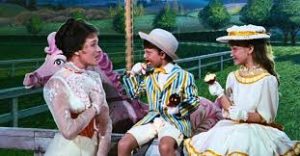




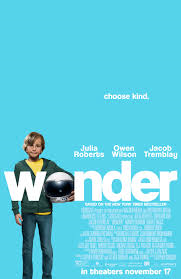


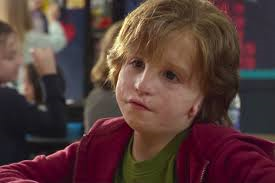
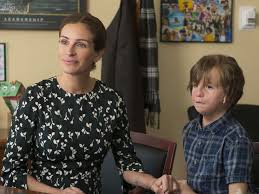
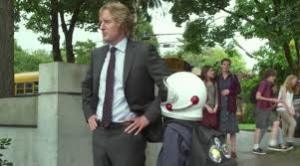
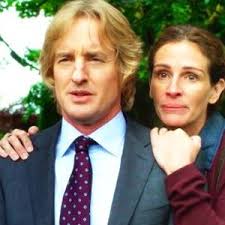
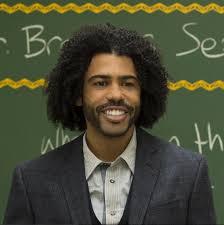

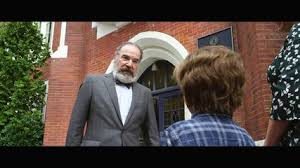
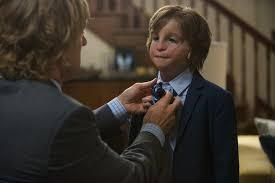
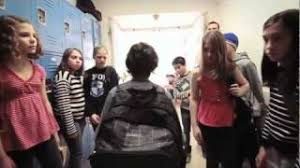
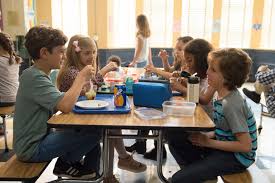
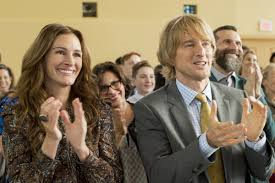
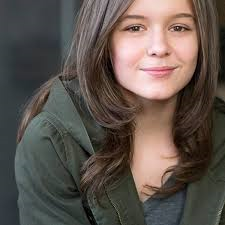
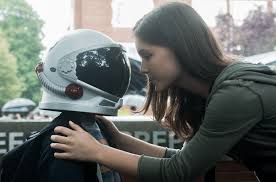
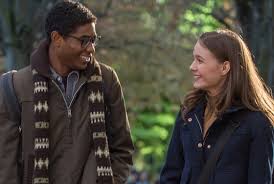

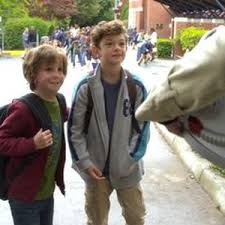
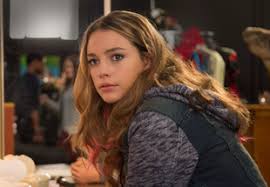


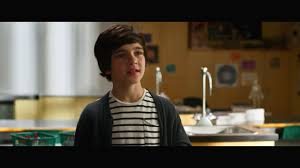
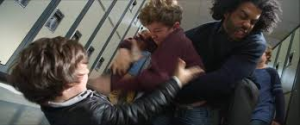
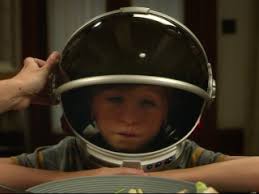
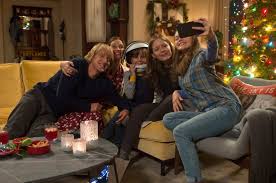
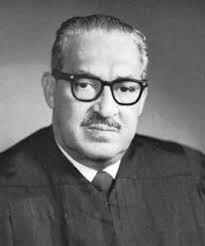
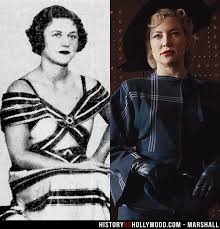

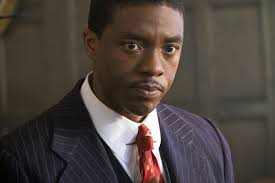
 Black Panther Clan and King of Wakanda in the upcoming Black Panther franchise.
Black Panther Clan and King of Wakanda in the upcoming Black Panther franchise.
